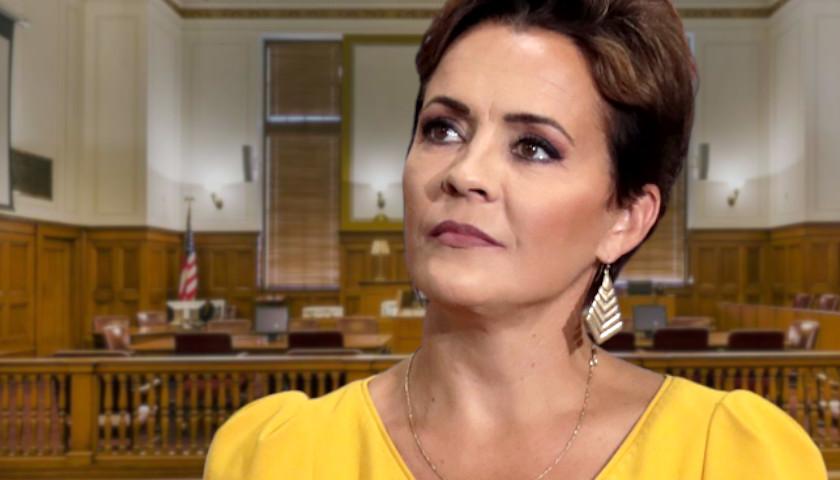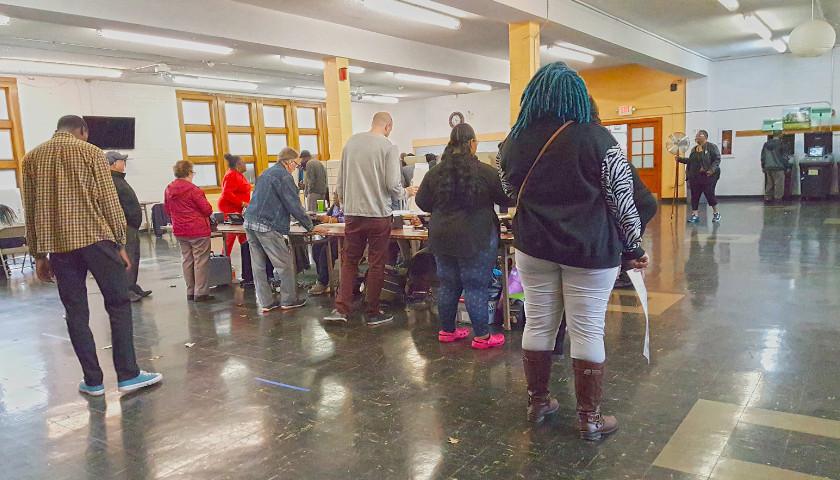Kari Lake’s appeal of the second dismissal of her lawsuit by the trial court judge is winding its way back up through the courts. Last week, she filed her opening brief with the Arizona Court of Appeals. Much of the brief focused on Maricopa County’s failure to conduct Logic & Accuracy (L&A) testing and the failure to compare voters’ signatures on their mail-in ballot affidavits to the signatures on their voter registrations, both a violation of state law and the state’s Election Procedures Manual (EPM). Violations of the EPM are class 2 misdemeanors.
Lake posted on X, “New evidence produced by Maricopa STRONGLY suggests County officials intentionally sabotaged the 2022 General Election, then gave false testimony attempting to cover up their misconduct. This is an unprecedented situation. Maricopa’s intentional disregard of critical election security requirements & Arizona election law cannot stand.”
🚨CASE UPDATE🚨
We have filed our appeal in the Maricopa County Election case with the Arizona Court of Appeals.
New evidence produced by Maricopa STRONGLY suggests County officials intentionally sabotaged the 2022 General Election, then gave false testimony attempting to cover…
— Kari Lake (@KariLake) September 16, 2023
The Kari Lake War Room added, “More evidence collected DIRECTLY from Maricopa County’s data & records You will be shocked to learn the full extent of their corruption “Kari Lake files appeal in election case, alleging officials intentionally sabotaged Election Day.”
The 61-page opening brief, authored by her attorney Bryan Blehm, addressed the trial court throwing out Lake’s lawsuit after the first trial and then again after a second trial. “Although finding Lake’s motion timely, the trial court denied Lake’s motion—ruling, inter alia, that Lake had improperly amended her prior claim with this new evidence,” the brief stated. “This was clear error. The claim Lake presented in this motion is plainly within the complaint and the same claim presented at trial in December 2022—but Maricopa’s wrongdoing is now plain to see.”
The wrongdoing referred to was how Maricopa County was conducting signature verification, which was recently declared unlawful by a judge. “The evidence presented at trial revealed that Maricopa created the façade of a transparent, scientific rigor to mislead the public about the integrity of the signature-verification process,” the brief said. It explained how even though the county “published signature-review training materials” and set up rooms with video-watching signature reviewers, “Maricopa does not require signature-review workers to ‘compare’ signatures in accordance with its training materials, and the vast majority of Maricopa’s 155 first-level signature verification workers worked remotely, out of sight, even at home.”
“In reality, Maricopa’s signature-verification workers could approve signatures without ‘need[ing] to look at any’ of the broad or local characteristics described in the training materials unless they had first decided, relying wholly on their own discretion, that a signature was somehow ‘in question,’” the brief said.
A.R.S. § 16-550(A) states that “the county recorder or other officer in charge of elections shall compare the signatures thereon with the signature of the elector on the elector’s registration record.” The EPM also requires this comparison.
The brief went on, “Maricopa’s signature verification workers ‘compared’ and approved over 275,000 voter signatures at humanly impossible speeds” in less than three seconds each, which could not have complied with the law. They were approved “each with a nearly 100% matching pass rate.” Another 70,000 were compared in less than two seconds.
The county’s training instructed reviewers to look at “eleven broad and local characteristics when conducting signature review,” which the brief stated was impossible to do in that limited amount of mine.
The appeal reviewed the county’s failure to conduct L&A testing of the voting equipment properly before the 2022 general election. There was “sworn expert testimony” at the trial which revealed that “Maricopa failed to properly perform L&A testing prior to the November 2022 General Election and that, had proper L&A testing been performed, the misconfigured and defective ballots would have been detected and remedied prior to Election Day.”
The brief stated that the county “falsely certified that, on October 11, 2022, the 446 tabulators used at Maricopa’s 223 vote centers passed L&A testing in accordance with A.R.S. § 16- 449,” which is also laid out in the EPM. Then, on October 14, 17, and 18 the county “conducted unannounced testing (not L&A testing)” and “learned that 260 of the vote-center tabulators rejected ballots yet did not fix those issues before Election Day and therefore knew that these tabulators would reject ballots, causing massive disruptions on Election Day.” This was new evidence that Lake only recently discovered.
The pleading stated that the county “swapped out the memory cards with the election program on all 446 vote-center tabulators on October 14, 17, and 18” after the publicly announced L&A testing, which was illegal. New evidence came out in a “belated and shocking admission” by the county. Lake only acquired it through public records requests that the county delayed providing, giving them to Lake after her first trial was conducted.
Lake also provided new evidence in her second trial: a report on the printer problems conducted by former Arizona Supreme Court Justice Ruth McGregor. The report confirmed that there were significant printer malfunctions.
The brief noted that Lake’s cyber expert Clay Parikh said during the trial, which “no defendant rebutted,” that the printer problems “could only be due to malware or remote configuration changes.” It slammed Maricopa County Elections Co-Director Scott Jarrett for testifying “at least four times that he neither knew of nor had heard of a 19-inch ballot image projected onto 20-inch paper in the 2022 General Election,” even though no one disputes that is what happened. Instead, Jarrett “downplayed” the printing problem, testifying that it only affected 1,300 ballots.
Lake’s brief alleged that thousands of ballots could not be fed through the voting machine tabulators as a result, “the vast majority of which were never counted.”
The brief said the “misrepresentations are widespread and significant,” warranting relief. It listed them as “failure to conduct L&A testing, false testimony about L&A testing, advance knowledge of failures of ballot tabulators, false testimony as to the causes and extent of tabulator BOD-printed ballot rejections, failure to disclose swapping out of tabulator memory cards and election software.”
The opening brief concluded that the county may have deliberately caused the Election Day tabulation problems to hurt Republicans. “Under Lake’s new evidence, the intentionality inferred from the evidence strongly suggests Maricopa engineered the Election Day harm to that cohort of voters, which implicates the Equal Protection and Due Process Clauses,” it said. The brief asked the court to set aside the election.
– – –
Rachel Alexander is a reporter at The Arizona Sun Times and The Star News Network. Follow Rachel on Twitter. Email tips to [email protected].
Photo “Kari Lake” by Gage Skidmore. CC BY-SA 2.0.





